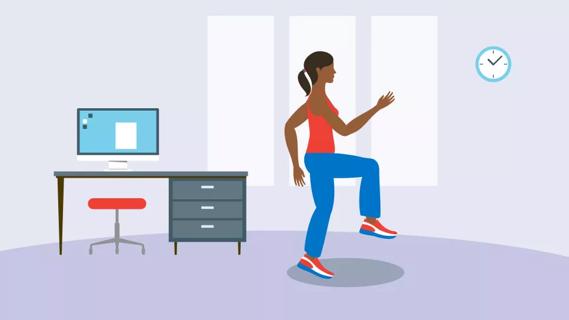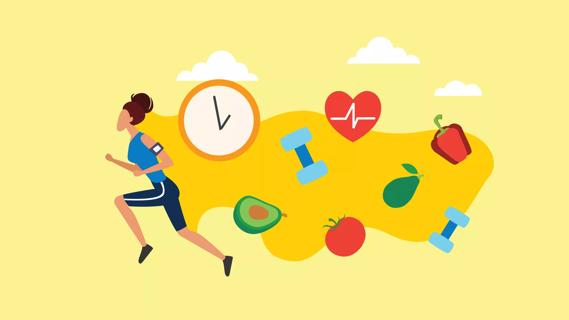They can provide social, physical, mental and emotional boosts!

There are very good reasons for people to get a pet — and not just because animals are cute!
Cleveland Clinic is a non-profit academic medical center. Advertising on our site helps support our mission. We do not endorse non-Cleveland Clinic products or services. Policy
Animals are “so much more than pets,” says Molly Gross, CCLS, a certified child life specialist and facility dog handler.
“They become like a member of your family. The term ‘pet’ doesn’t encompass the meaning and the impact they have.”
In fact, pets can also give you significant — and sometimes surprising — health benefits.
You’ve probably felt a rush of joy scrolling through social media and seeing cute pet photos from friends. Being in the physical presence of an animal is equally good for you.
“Research has shown that petting a dog decreases the stress hormone cortisol,” Gross says. “This helps to decrease your blood pressure and overall helps you feel less stressed.”
Anyone with a dog or cat knows who’s really in charge of meal times. “You have to get up every morning because your dog has to get up,” Gross says.
But she adds having that nudge to wake up can be beneficial to humans. “It keeps you in a routine, and having that routine — and putting something or someone else before you — provides a physical and mental boost.”
Pets can also lead to more human connections. How many times have you been walking your dog (or cat!) and then encounter strangers who strike up conversations simply because your good boy or girl is so cute?
“Animals are part of the family and become your companion,” Gross notes. “But animals can help you be social, and feel less alone or isolated when you’re at home.”
Indeed, a furry companion can help even if you’re just hanging at home. A survey by the journal Aging & Mental Health of 14 community-dwelling adults aged 65 or older with pets found that their pets might benefit them by “providing companionship, giving a sense of purpose and meaning, reducing loneliness and increasing socialization.”
Physical exercise is key to a brain-healthy lifestyle. Experts generally agree that adults need at least 150 minutes a week of moderate-intensity aerobic physical activity for good health.
The payoff extends beyond enhanced brain health to weight control, improved cardiorespiratory fitness and muscular strength, and reduced risk of chronic diseases and killers such as heart disease, stroke, cancer and diabetes.
While cats aren’t necessarily the most active animals — although they can be playful if they’re in the mood — you can get quite a bit of exercise with a dog, especially if they’re active and love walking. Luckily, brisk walking counts as moderate-intensity activity for you, too.
“Obviously, dogs are getting outside for bathroom breaks,” Gross says. “But if you’re going for walks or hikes or doing something active that you enjoy with your dog, you’re getting up and moving. And it’s even better because you have your best friend with you.”
At the end of the day, you don’t necessarily need to have a dog or cat to get the benefits of having an animal.
“I grew up with dogs, and they’re always ready to greet you and to give you affection and love you unconditionally,” she says. “But I imagine that’s probably true for some other animals. In fact, I’m sure the cat lovers and the reptile lovers would agree that there are some similar benefits.”
It’s important to note that while service animals provide many of the same health benefits as pets — for example, companionship and helping you feel less alone — they aren’t the same thing.
Service animals are specifically trained to provide support for people living with certain disabilities.
“When service animals get placed with people, they’re saving their lives,” Gross states. “They provide a number of services based on someone’s needs, from helping them cross the street safely, alerting them about low blood sugar or even providing deep pressure therapy. It’s a huge privilege for a dog to be deemed a service animal.”
Pets and service animals are also different from facility dogs. These are dogs who go to hospitals and offer all kinds of support.
For example, Gross looks after Kid, who is a facility dog at Cleveland Clinic. “He received similar training to a service animal,” she explains. “But these dogs are trained to be able to perform animal-assisted therapy interventions with their handlers and provide services to several patients versus serving one individual.”
Gross says Kid helps with therapies and treatments kids are going through. “That could be helping them get up and out of bed after surgery,” she continues, “or calming their nerves before, during, or after a procedure, or building a therapeutic relationship if they have a chronic condition.”
In other words, Kid makes the hospital experience that much better. As a facility dog handler who is also a child life specialist, my dog is another tool in my toolbox to help motivate and support my patients, Gross adds. “Dogs have the power to make people feel safe, and they build relationships faster than any human can.”
Learn more about the Facility Dog program at Cleveland Clinic:
Learn more about our editorial process.

Chair exercises can help people age 65+ retain independence

Both are needed for a healthy body

Counteract psoas muscle stiffness and soreness with stretches that lengthen and strengthen

It may be OK, depending on your health, fitness level and type of exercise

Simple exercises like wall angels and pelvic tilts can help keep your body in an optimal position — and help undo years of improper posture habits

A pro-level laugh can release good-for-you oxytocin, dopamine and endorphins

Losing belly fat can reduce your risk for chronic health conditions — try focusing on a diet high in lean protein, exercising regularly, reducing stress and getting quality ZZZs

It’s best to exercise before or after your fast, instead of during it

Your metabolism may torch 1,300 to 2,000 calories daily with no activity

A gentle touch in all the right places may help drain your sinuses